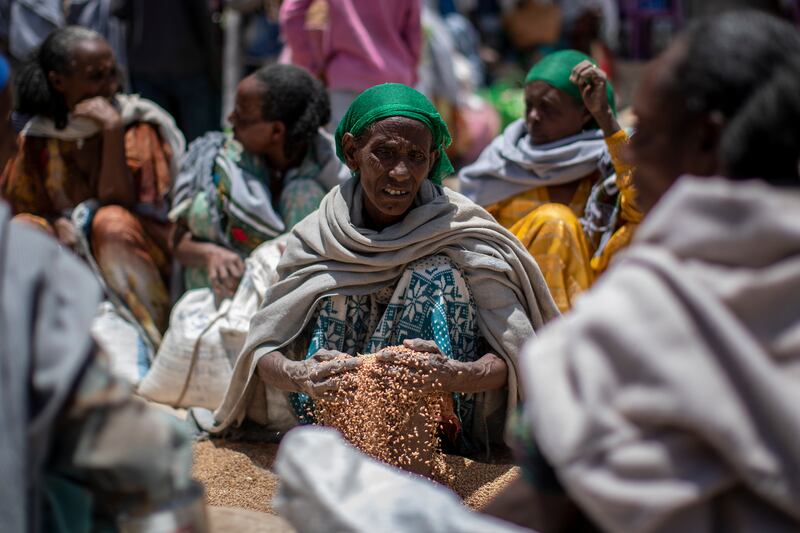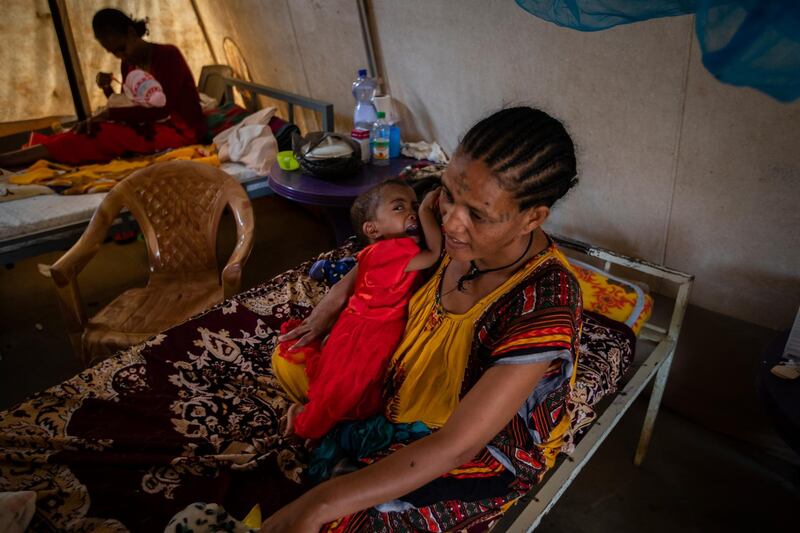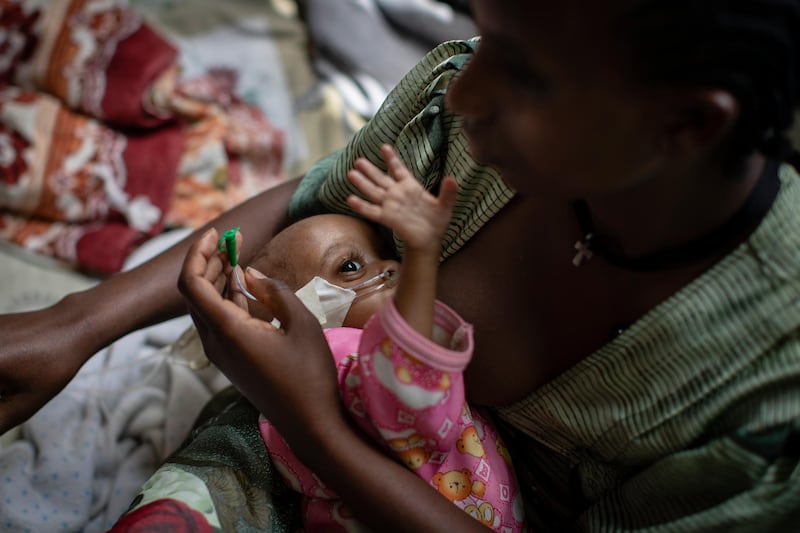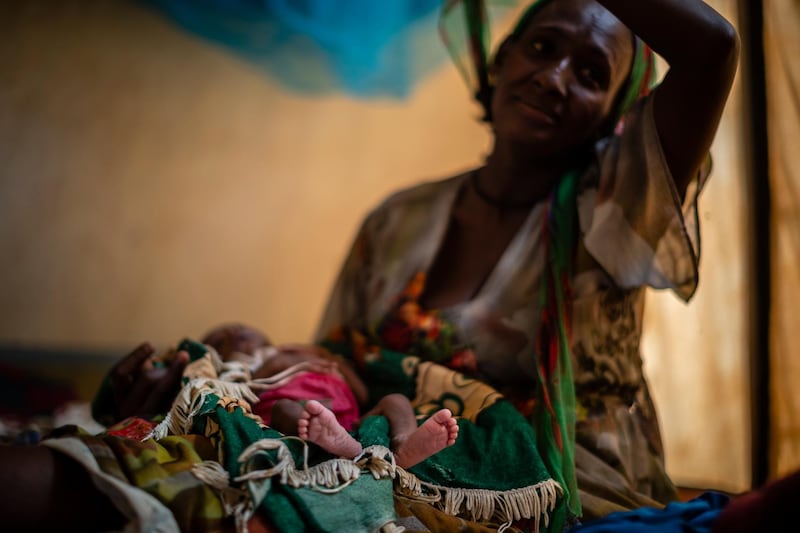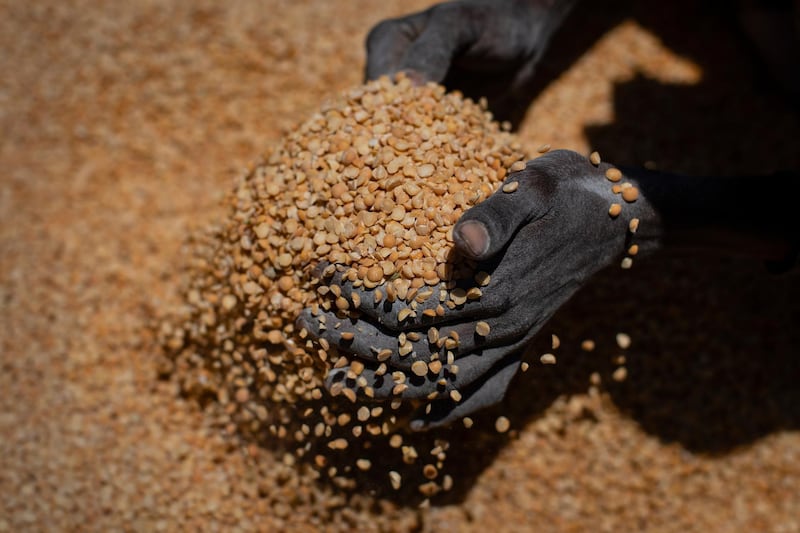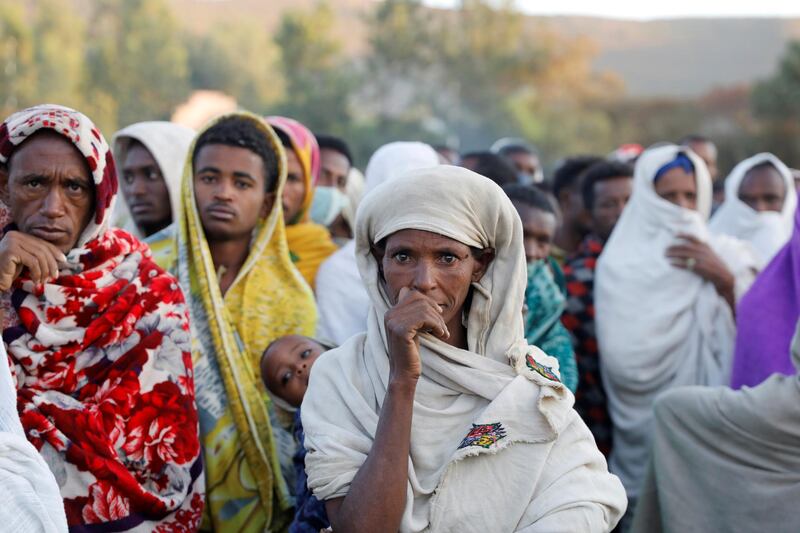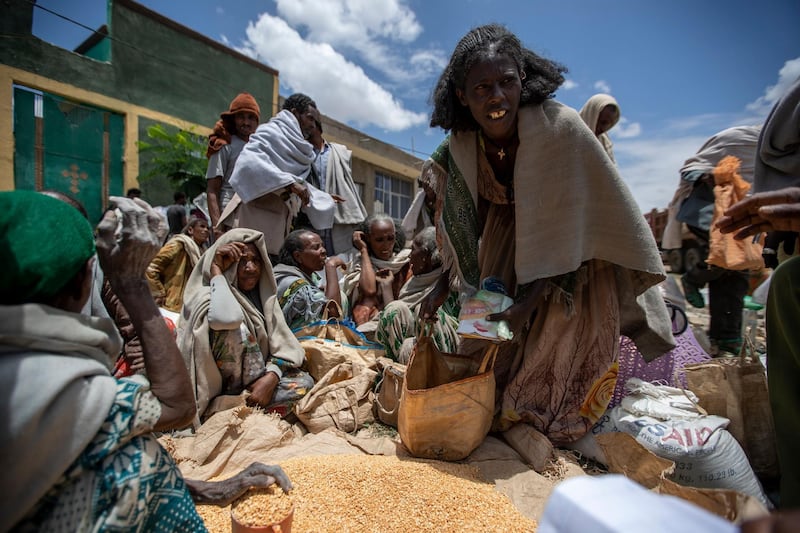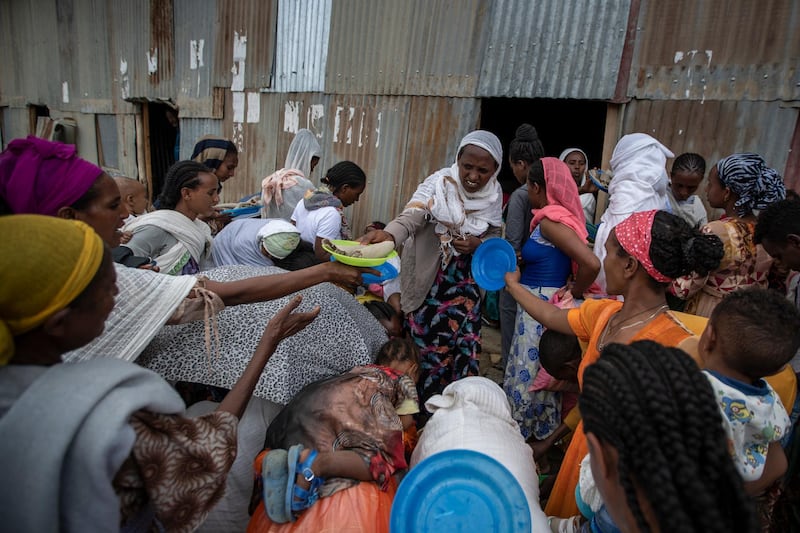The top humanitarians from the US and the UN headed to Ethiopia on Thursday for a diplomatic push on the crisis in the northern Tigray region, where aid workers are struggling to bring enough food to a famine-stricken population.
UN aid chief Martin Griffiths began a six-day mission to Ethiopia on Thursday and USAID Administrator Samantha Power will travel to Sudan and Ethiopia from Saturday to Wednesday amid mounting concerns about the 5.2 million Tigrayans who rely on assistance.
The visit comes as a convoy of 44 lorries led by the UN's World Food Programme was headed from Afar province along the only passable road into Tigray, where food and other supplies were expected to run out as soon as Friday, the agency told The National.
In a statement, Mr Griffiths said he would meet government officials in hopes of “scaling up the humanitarian response across the country”. Aid workers have frequently complained about being denied access to parts of the country.
Mr Griffiths will meet civilians in Tigray, where about 90 per cent of the population relies on aid.
USAID said Ms Power was making her trip amid a fresh diplomatic push by President Joe Biden's administration as fears of ethnic cleansing in the region rise.
The administration is hoping that negotiations between the Ethiopian government and Tigrayan forces will resolve the conflict.
Ms Power is due to meet Ethiopia's national security adviser and will potentially meet Prime Minister Abiy Ahmed during her trip, a senior USAID official said. Washington hopes to secure unhindered humanitarian access to Tigray.
“There will be, I think, continued punitive measures as long as we are unable to access those populations,” the official said.
The Ethiopian government denies blocking food aid.
Fighting erupted in Tigray in November when the government accused the Tigray People's Liberation Front (TPLF) of attacking military bases across the region — an accusation the group denied.
The government declared victory three weeks later when it took the regional capital Mekelle, but the TPLF kept fighting and has since retaken most of the region.
Ethiopian troops withdrew from most of Tigray in late June when the TPLF retook the regional capital. The central government declared a unilateral ceasefire on what it said were humanitarian grounds.
Thousands of people have died in the fighting and around two million people have been displaced.
Washington is also concerned about reports of mass arrests, beatings and torture of Tigrayans in custody in Addis Ababa as well as some of Mr Abiy's rhetoric concerning the region, the official said.
“The concerns that we have about ethnic cleansing and ethnic targeting are very real,” the official stated, and added that Ms Power will address this in meetings with the Ethiopian leadership.
The Ethiopian government has denied attacking Tigrayans as an ethnic group, saying their fight is with the ruling party that controls the region.
“All statements by the federal and regional governments refer to the criminal enterprise that is TPLF and not the people of Tigray,” a government-run Twitter account focused on Tigray tweeted this week.
Reuters contributed to this report
